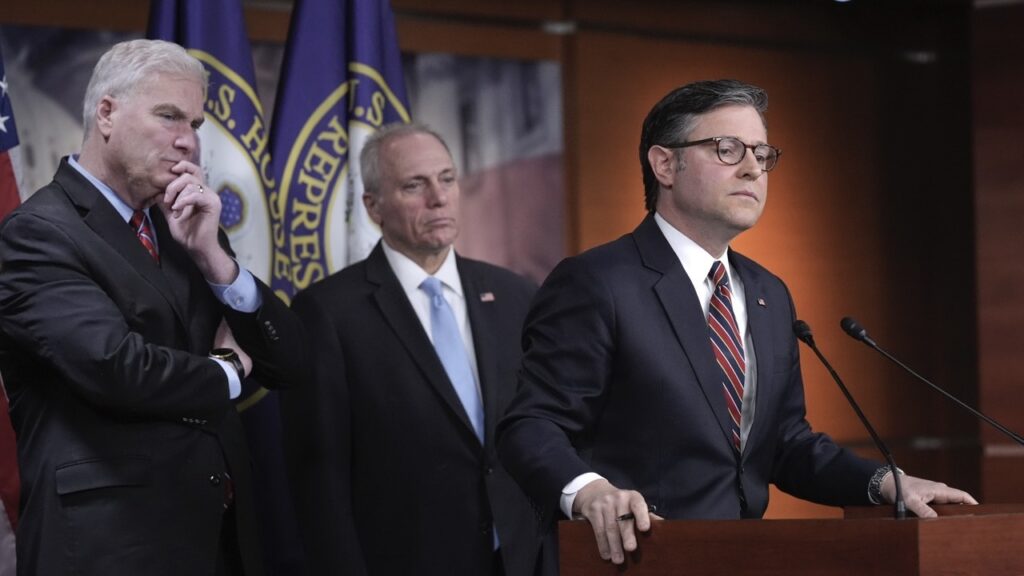Share
Gov. Gavin Newsom dropped the strongest hint yet that he may be thinking about a presidential candidacy Monday when he vetoed a bill that would have allowed cities to set up sites where addicts could ingest drugs.
National political media had been waiting for Newsom’s action, reasoning that if he rejected a bill supported by progressives in his Democratic Party, it would indicate that he was worried that signing it would alienate moderate voters in other states.
Newsom has consistently denied harboring presidential ambitions but has drawn national media attention with his sharp attacks on red state governors and his entreaties that Democrats mount a stiffer defense in the face of conservative political and judicial gains.

Dan Walters
CalMatters
Opinion
Gov. Gavin Newsom dropped the strongest hint yet that he may be thinking about a presidential candidacy Monday when he vetoed a bill that would have allowed cities to set up sites where addicts could ingest drugs.
National political media had been waiting for Newsom’s action, reasoning that if he rejected a bill supported by progressives in his Democratic Party, it would indicate that he was worried that signing it would alienate moderate voters in other states.
Newsom has consistently denied harboring presidential ambitions but has drawn national media attention with his sharp attacks on red state governors and his entreaties that Democrats mount a stiffer defense in the face of conservative political and judicial gains.
Prior to Monday’s rejection, the New York Times quoted Jessica Levinson, a Loyola University Law School professor and political analyst as framing the bill’s politics:
“I feel like Gavin Newsom is the most and least likely governor in America to sign this bill — most likely in the sense that he likes to be ahead of the curve. But if he signs this, the ads kind of write themselves: He becomes ‘Governor Heroin.’”
The legislation Newsom rejected, Senate Bill 57, was carried by Sen. Scott Wiener, a San Francisco Democrat, and had cleared both houses of the Legislature, albeit narrowly, with only Democratic support.
Newsom’s predecessor, Jerry Brown, had vetoed a similar bill, saying it sent the wrong message about drug abuse, but during his 2018 campaign for governor, Newsom indicated that he was open to the idea. On Monday, he didn’t denounce it as strongly as Brown had done, but expressed concerns about its workability and “unintended consequences.”
“I have long supported the cutting edge of harm reduction strategies,” Newsom said in his veto message. “However, I am acutely concerned about the operations of safe injection sites without strong, engaged local leadership and well-documented, vetted, and thoughtful operational and sustainability plans.”
“The unlimited number of safe injection sites that this bill would authorize – facilities which could exist well into the later part of this decade – could induce a world of unintended consequences. It is possible that these sites would help improve the safety and health of our urban areas, but if done without a strong plan, they could work against this purpose. These unintended consequences in cities like Los Angeles, San Francisco, and Oakland cannot be taken lightly. Worsening drug consumption challenges in these areas is not a risk we can take.”
Newsom said his administration would convene meetings with local officials to discuss “minimum standards and best practices for safe and sustainable overdose prevention programs” and “a truly limited pilot program.”
Wiener, in a statement, said Newsom’s veto “sends a powerful negative message that California is not committed to harm reduction” and added, “We don’t need additional studies or working groups to determine whether safe consumption sites are effective. We know from decades of experience and numerous peer-reviewed scientific studies that they work.”
Despite Newsom’s denials of presidential ambition, his name has popped up with increasing frequency on media lists of potential candidates should President Joe Biden decide not to pursue a second term in 2024. Polls have indicated that most Democrats would prefer that Biden, who suffers from high disapproval rates in voter polls, not run again.
Just last week, a new poll was released by the UC-Berkeley Institute of Governmental Studies, reporting that 61% of California voters don’t want Biden to run again, including 46% of Democrats. The same poll also indicated that Newsom ranks high as a replacement candidate.
About the Author
Dan Walters has been a journalist for nearly 60 years, spending all but a few of those years working for California newspapers. He began his professional career in 1960, at age 16, at the Humboldt Times. For more columns by Walters, go to calmatters.org/commentary.
Make Your Voice Heard
GV Wire encourages vigorous debate from people and organizations on local, state, and national issues. Submit your op-ed to rreed@gvwire.com for consideration.
RELATED TOPICS:
Soviet-Era Spacecraft Plunges to Earth After 53 Years Stuck in Orbit
6 hours ago
Tax the Rich? Slash Spending? Republicans Wrestle With Economic Priorities in the Trump Era
6 hours ago
Experts Call Kennedy’s Plan to find Autism’s Cause Unrealistic
7 hours ago
Trump’s Trip to Saudi Arabia Raises the Prospect of US Nuclear Cooperation With the Kingdom
7 hours ago
Oh Ohtani! Dodgers Star Hits 3-Run Homer in Late Rally Victory Over Diamondbacks
7 hours ago
Tariff Talks Begin Between US and Chinese Officials in Geneva
7 hours ago
Summer Movie Guide 2025: Here’s What’s Coming to Theaters and Streaming From May to August
8 hours ago

Two Teens Charged in Shooting Death of Caleb Quick

Soviet-Era Spacecraft Plunges to Earth After 53 Years Stuck in Orbit

Tax the Rich? Slash Spending? Republicans Wrestle With Economic Priorities in the Trump Era














